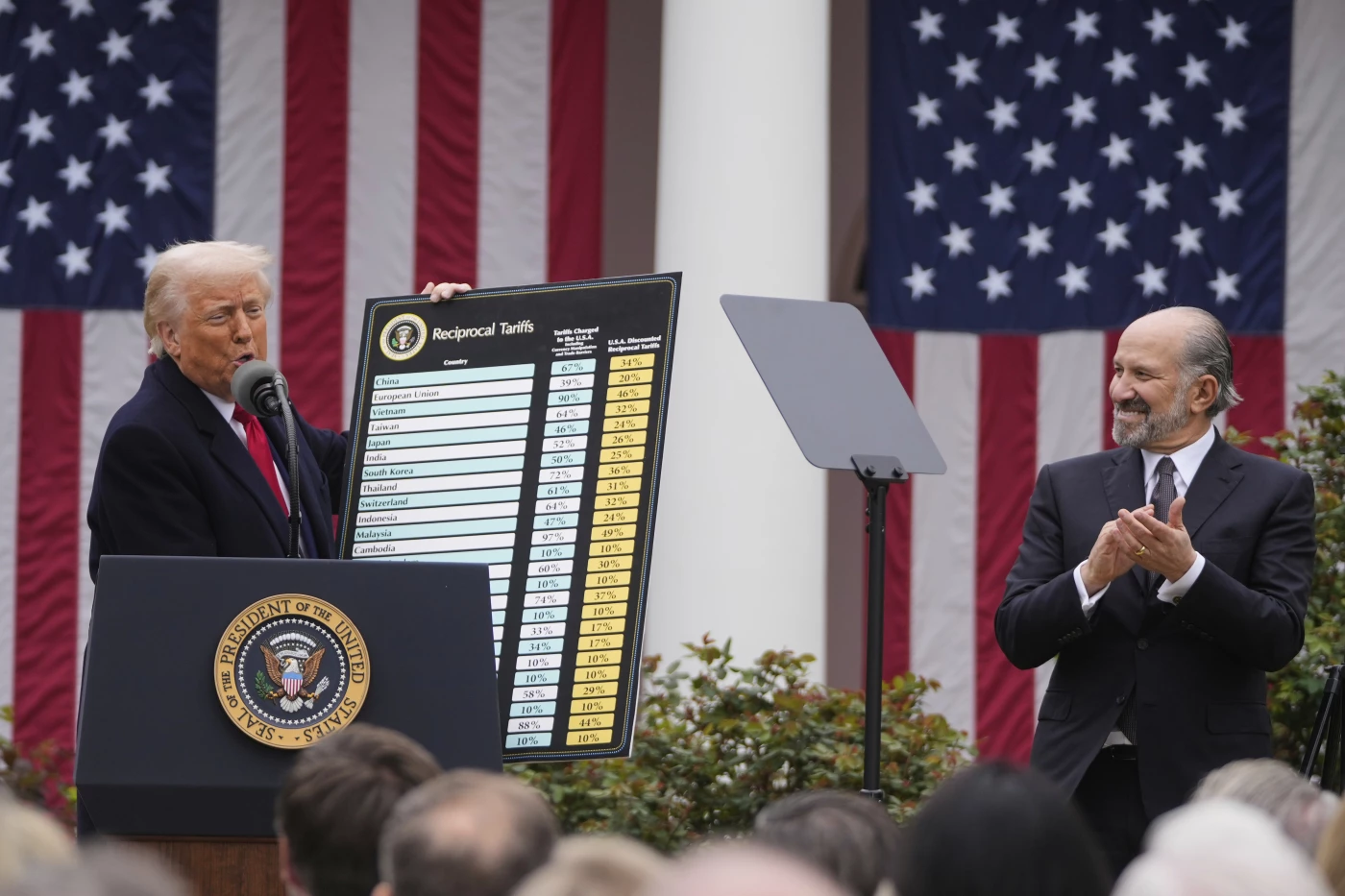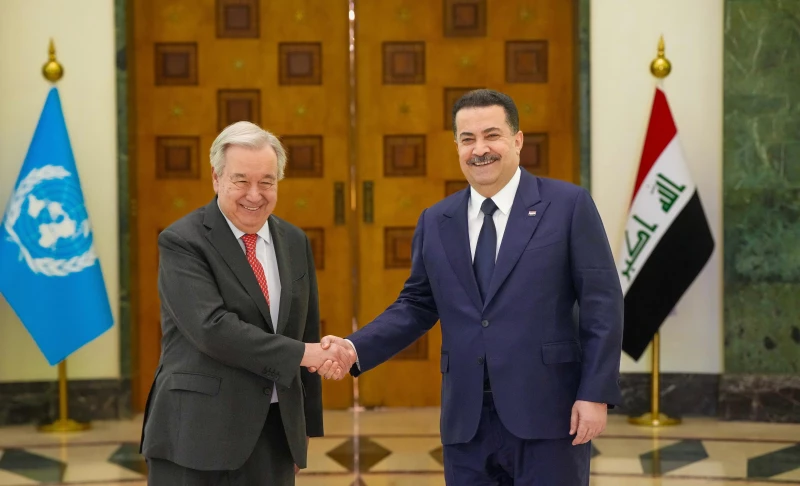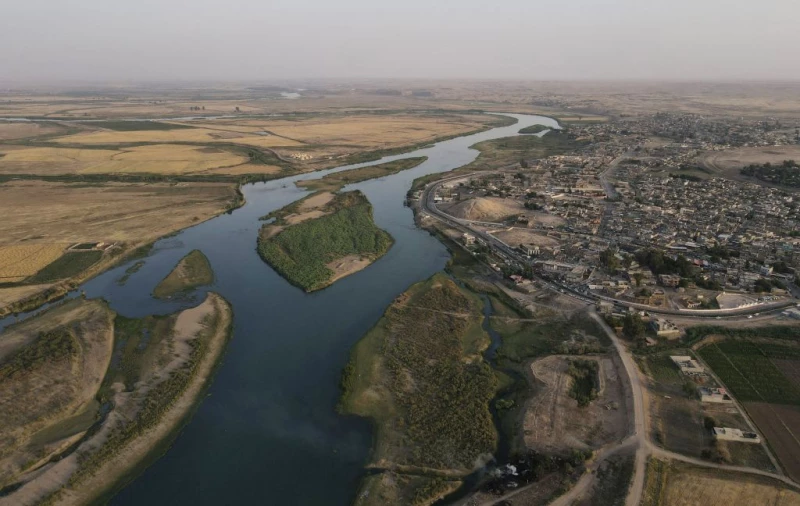ERBIL, Kurdistan Region of Iraq - The price of Iraqi crude oil may soon face volatility amid uncertainty following a series of tariff decisions by US President Donald Trump, sparking concern among Iraqi officials over the potential economic fallout.
The tariffs, aimed at raising the cost of imported goods in domestic markets, are intended to boost the competitiveness of national industries while also serving as a revenue source for the US government.
Trump has imposed customs duties on various goods imported into the United States from most countries, including Iraq, with rates ranging between 10 percent and 48 percent. In response, several countries have retaliated with tariffs on American exports.
Following these moves, the Iraqi government announced four measures to mitigate the economic and trade effects of the US administration’s decision.
According to a statement issued by the Iraqi Council of Ministers, Iraq will pursue stronger bilateral trade relations by opening channels for American distributors and commercial agencies, activating Iraqi trade agencies, and facilitating direct trade between related sectors in both countries. The government also aims to improve financial services between Iraqi and US banking sectors to ensure mutually beneficial economic outcomes.
The government has directed its negotiation team to reassess the foundations of Iraq’s trade relationship with the United States in order to foster a more balanced and beneficial economic partnership.
Additionally, the ministries of foreign affairs, finance, and trade have been tasked with initiating dialogue with their US counterparts to enhance trade ties and monitor financial markets and economic think tanks.
The government said data from Iraq’s Ministry of Trade shows that the US decision to raise tariffs on Iraqi goods was based on the imbalance in the trade relationship rather than any customs duties Iraq imposes on US imports.
The ministry's data also revealed that the majority of Iraq’s imports of American goods pass through other countries due to certain trade policies followed by US companies when dealing with Iraq.
Parliament downplays the impact
Meanwhile, a senior member of Iraq’s parliamentary finance committee said the tariffs imposed by President Trump are unlikely to affect Iraqi oil prices.
“The price of oil is governed by supply and demand,” committee member Moein al-Kadhimi told The New Region. “There’s been a drop from $70 to $65 per barrel, and that drop does impact general revenues for the 2025 federal budget.”
However, Kadhimi said the decline does not warrant a revision of the oil price in the budget.
“Instead, oil revenues will be calculated based on the actual sale price, with projections now based on 300,000 barrels per day sold at $65 instead of $70,” he said.
Kadhimi called for stronger reliance on non-oil revenues and less dependency on oil exports, urging the government to activate the agricultural and industrial sectors, reduce unnecessary spending, and work to shrink the budget deficit.
“The 2025 budget requires 140 trillion dinars just for operating expenses,” he said.
Conflicting opinions
Not all lawmakers share Kadhimi’s assessment. Member of Parliament Murtadha al-Saadi expressed concern that the tariffs could affect oil prices.
“There will be changes to oil prices as a result of President Trump’s tariff decision on Iraq,” Saadi told The New Region.
He said negotiations are underway to address the tariffs but warned that if the US remains firm on the duties, it could destabilize the relationship between Baghdad and Washington.
Saadi added that Iraq is preparing alternative strategies in case tariffs disrupt oil pricing.
Calls to diversify revenue
Economist Manar al-Obaidi argued that oil prices will remain insulated from Trump’s tariffs, as crude oil exports are not subject to customs duties.
“The price of oil in Iraq will not be affected by Trump’s tariffs because oil is not included in the list of taxed goods,” Obaidi told The New Region.
Obaidi also emphasized the urgent need to increase non-oil revenue and reduce future spending.
‘Emotional decisions’
Economic researcher Diaa al-Mohsen criticized the Iraqi government’s handling of the situation, describing its response as inconsistent and lacking long-term vision.
“The government appears to be making impulsive decisions without strategic planning,” Mohsen told The New Region. “The oil market is inherently unstable and reacts to political, economic, and even military developments. Oil pricing in the budget must consider these factors or else risk potentially disastrous outcomes.”
He also said that the issue of changing or not changing the oil price in the budget serves another purpose.
“It’s merely an excuse by the government to delay sending the budget tables, which are already four months overdue,” Mohsen said.
He clarified that oil exports to the US will remain unaffected by the tariffs, as oil and gas are exempt from the new American duties.
“There are tariffs and taxes on Iraqi goods exported to the US, but they do not exceed $300 million,” he said.
Mohsen reiterated calls for the government to diversify its revenue streams to avoid financial crises.
“The government must seriously work on diversifying sources of revenue for the federal budget,” he said. “This can only be achieved by investing in other economic sectors such as agriculture, industry, tourism, and technology. Without such action, Iraq will remain vulnerable to any tremors in the oil market.”



 Facebook
Facebook
 LinkedIn
LinkedIn
 Telegram
Telegram
 X
X


